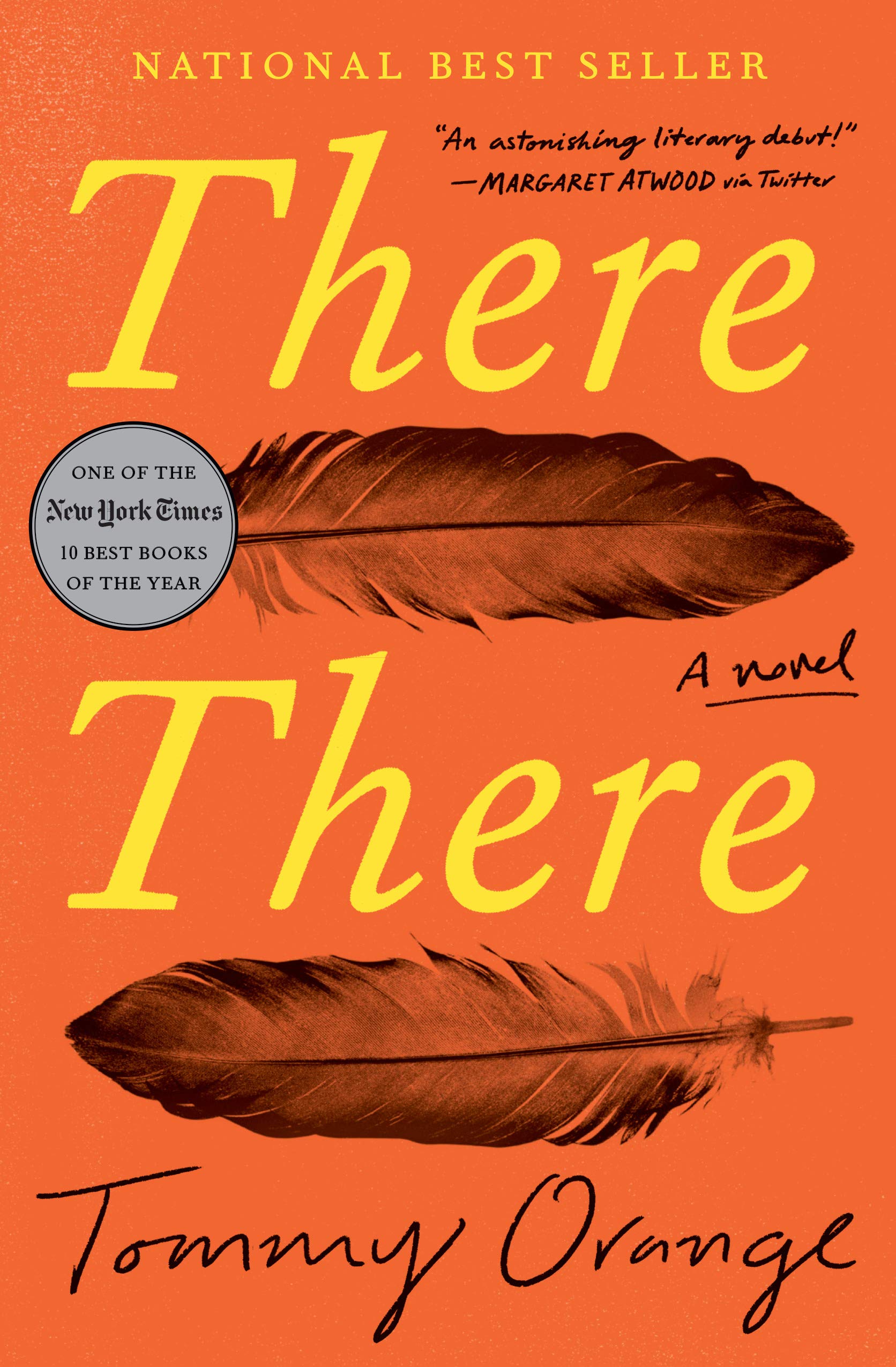Urban Indians feel at home walking in the shadow of a downtown building. We came to know the downtown Oakland skyline better than we did any sacred mountain range, the redwoods in the Oakland hills better than any other deep wild forest. We know the sound of the freeway better than we do rivers, the howl of distant trains better than wolf howls, we know the smell of gas and freshly wet concrete and burned rubber better than we do the smell of cedar or sage or even fry bread--which isn't traditional, like reservations aren't traditional, but nothing is original, everything comes from something that came before, which was once nothing. Everything is new and doomed. We ride buses, trains, and cars across, over, and under concrete plains. Being Indian has never been about returning to the land. The land is everywhere or nowhere.
Tommy Orange's There There is bookended by two big cultural moments, each a kind of community action, each utterly urban and utterly Native American: first, the real-life takeover of Alcatraz Island in 1970 by Native activists, and second, a huge powwow at the Oakland Coliseum. There There follows about a dozen characters who are related to the powwow in some way: a drummer, a dancer, an organizer, and a small handful of petty criminals who are planning to rob it. By weaving these stories together, Orange gives us a picture of what it means to be a Native American in the city in the 21st century.
One of the things I liked best about There There is how it deflates so many of our stupidest and most entrenched ideas about what it means to be Native American. I love the above section, for example, which challenges the lazy association of Native Americans with "the land." That association produces an image of Native Americans on remote reservations, and lets us believe that's where Native Americans belong, in nature, but as Orange notes, "The land is everywhere or nowhere": the dispossession of Native Americans can't be corrected with token pieces of rural wilderness, but with a full reintegration of Native Americans into our political and social fabric. The land, Orange insists, is as much the city as it is anywhere else.
Most of the characters in There There vacillate between confusion and ignorance regarding their Native American heritage. For some, like Orvil Red Feather, donning the powwow regalia in secret and training as a dancer is a way of accessing a heritage he has never really known or felt comfortable in. Jacquie Red Feather and Opal Victoria Bear Shield spent their lives reckoning with the failed promise of the Alactraz takeover they remember from when they were children. A lot of the characters here are most at home in the anonymity of the internet, like Edwin Black, who uses Facebook to find his real father and to connect with other Native people, even as his shame about his weight alienates him from the world at large. For others, being Native is little more than a story told by a grandmother, a piece of information they are unable to fit into the various gripes and indignities of everyday American life.
There There seems poised on the knife-edge of the 21st century. Orange writes about music in a way that feels modern and unforced, which is no easy feat; the title of the novel combines both a Radiohead song and a famous comment about Oakland by Gertrude Stein. There's Facebook and drones and 3-D printed guns and they feel as if they belong; though who knows if the novel will feel more dated in a decade. For me its modernity felt thematically appropriate, a kind of claim about the persistence of Native life in this country, which we are more comfortable assigning to the past.
On the other hand, There There suffers from having about half a dozen too many characters. At one point, Orange namechecks Louise Erdrich (who provides also a prominently placed blurb), and it's easy to see her influence here in the intersecting narratives, but I got easily lost. I felt particularly confused about the crew of would-be powwow robbers. I liked the character of Tony Loneman, an alienated young man who calls the disfigurement of his fetal alcohol syndrome "the Drome." (Which resonates with drone and dome, although the Oakland Coliseum isn't a dome...) But there are three or four characters who each get their own POV chapters who kind of blend together, and that made the novel's final eruption into violence bewildering and frustrating. There There ends with a literal massacre that is difficult to disentangle from historical massacres that lurk behind Native history in America, and its purpose is hard to discern. Orange isn't obligated, of course, to provide reassurance or hope, but the pointed bloodshed of the novel's end seemed as gratuitous as it was confusing.


No comments:
Post a Comment